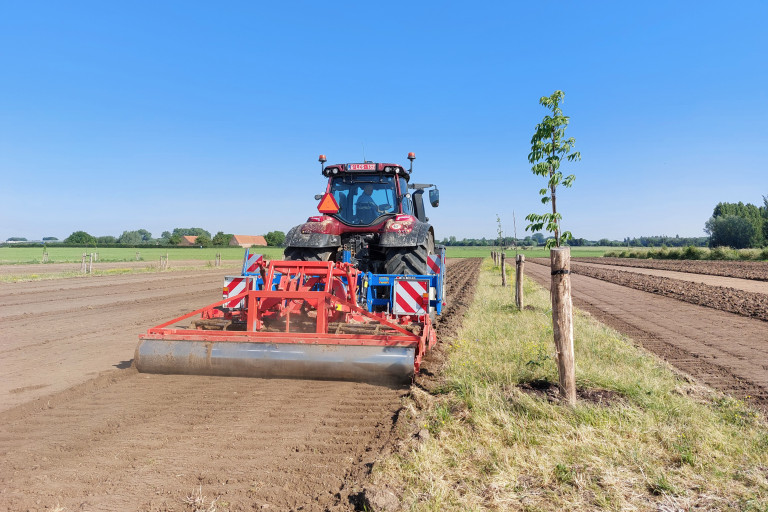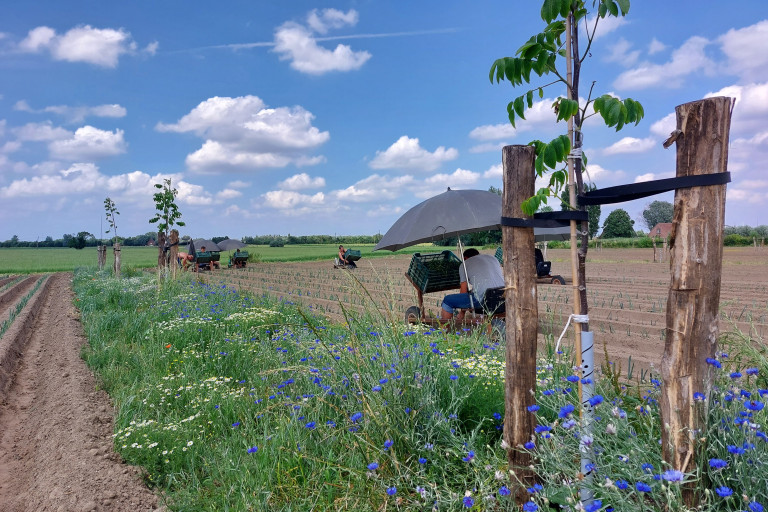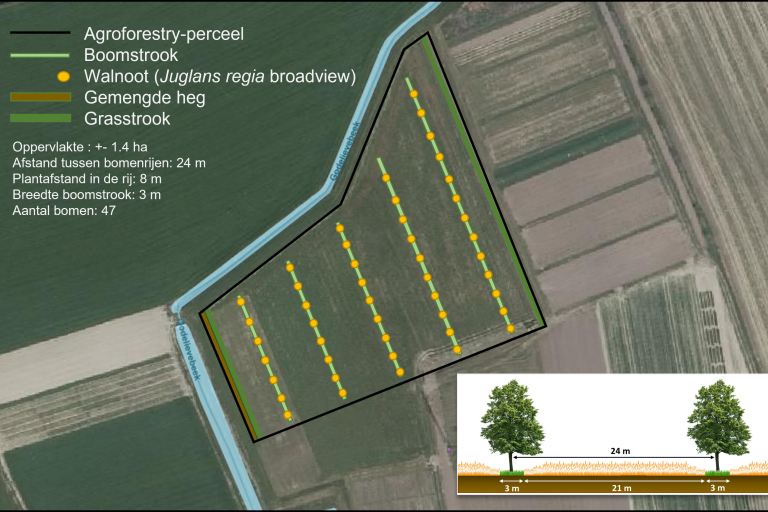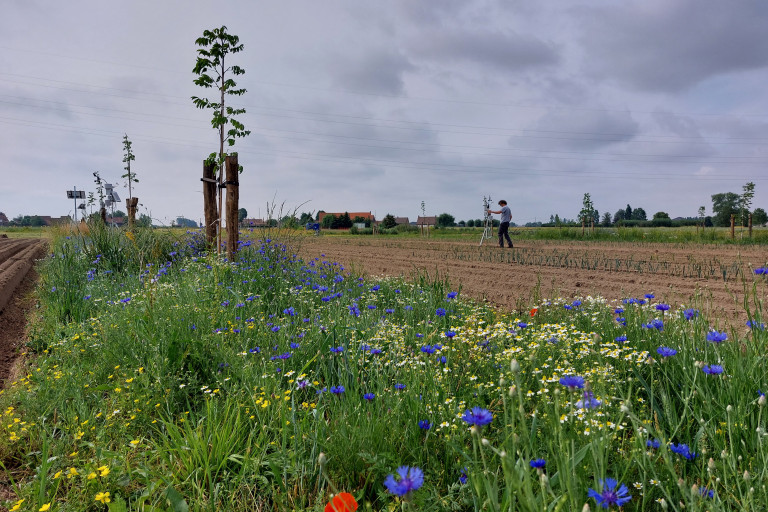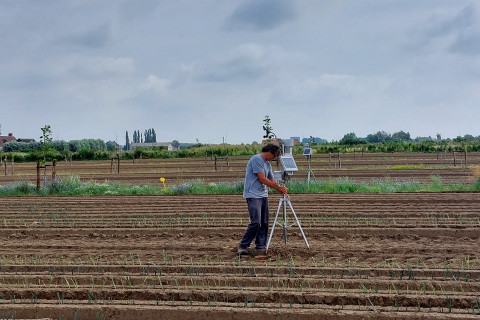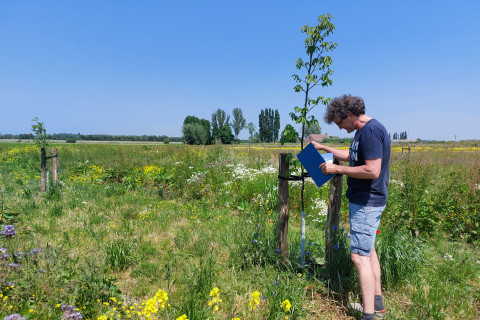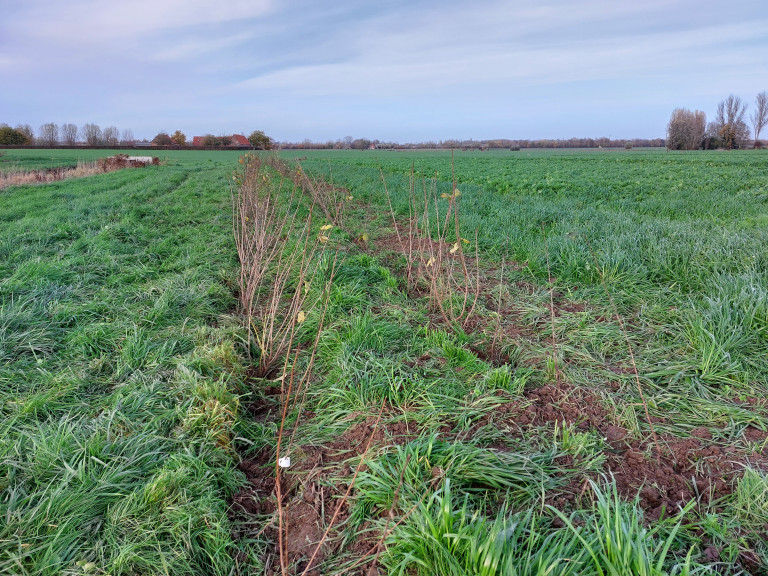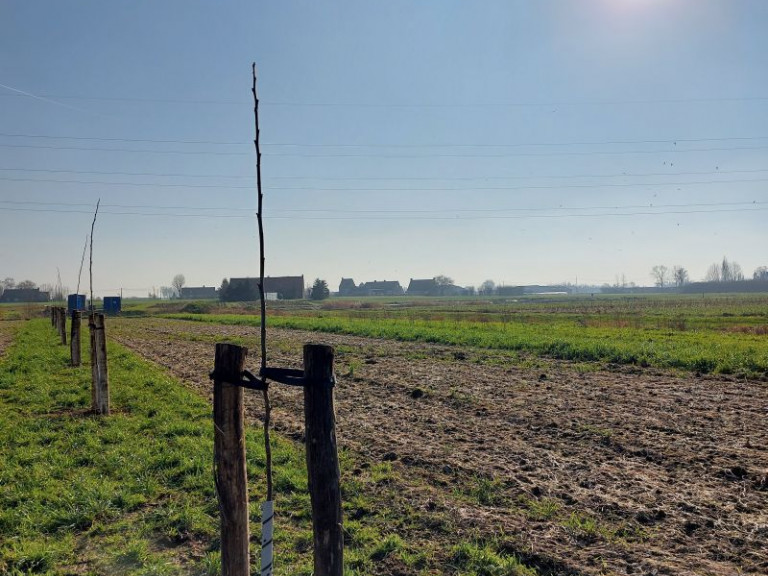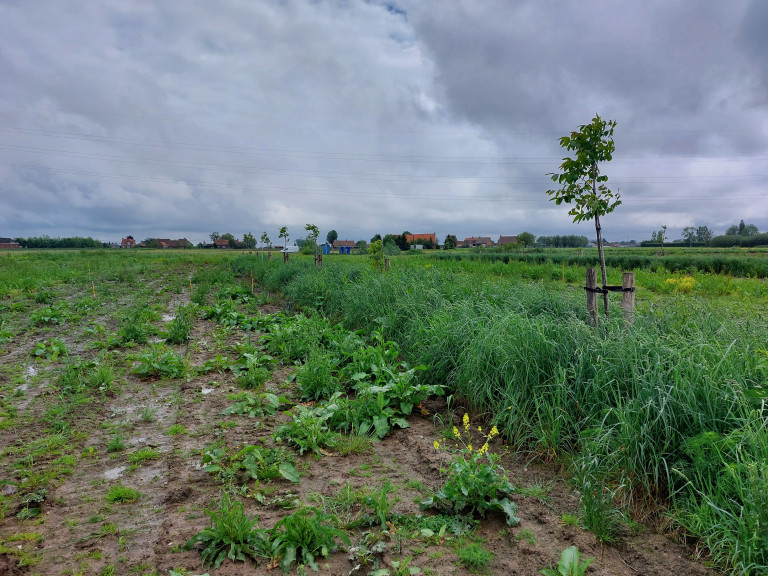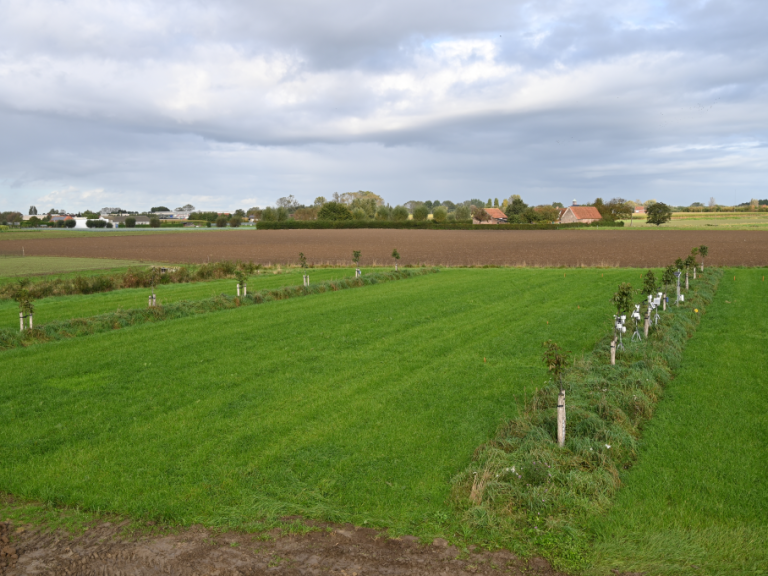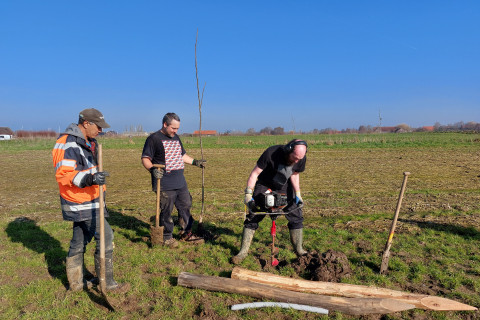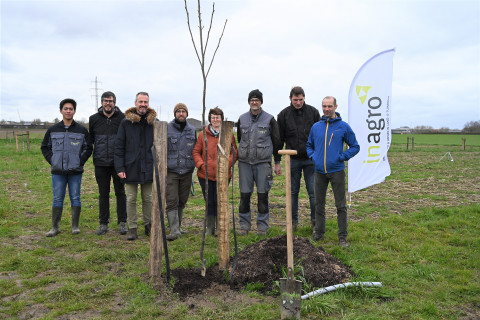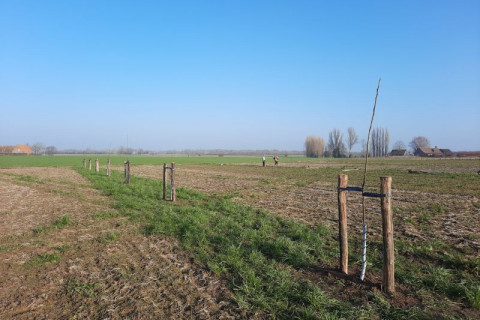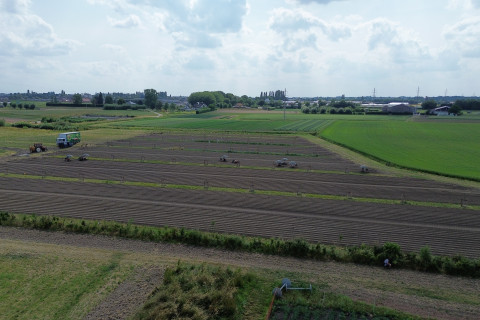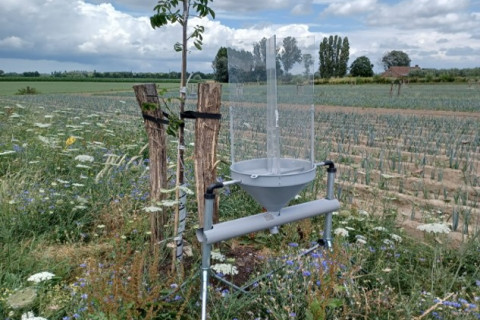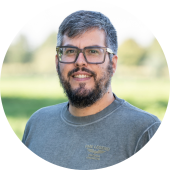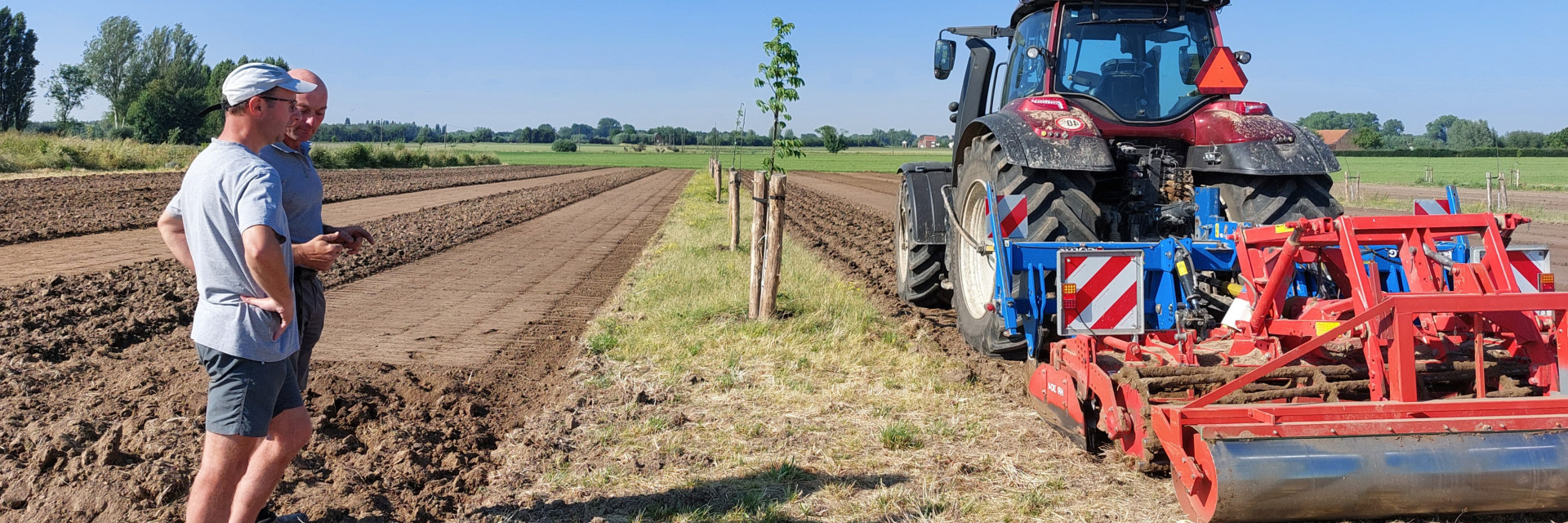
Research and demonstration plot agroforestry
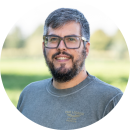
Need for hands-on experience
Flanders, and by extension Europe, identify agroforestry or forest agriculture as a sustainable and climate-robust form of agriculture with many advantages for both farmers and climate, soil and biodiversity.
Yet growers remain rather reluctant and even the Flemish planting subsidy has not yet led to the hoped-for increase in the area of agroforestry.
- A lack of good examples and practical experience in the Flemish context is one of the explanations for this.
- Moreover, installing an agroforestry system is an investment that only starts paying off in the longer term. A long-term follow-up is therefore necessary to value these systems.
With our research and demo plot we are responding to these needs to take agroforestry beyond the pioneering phase.
Answers to many questions
Our objectives are multiple. Managing our own pilot plot of agroforestry allows us to:
- study the impact of trees on cultivation, water management, soil & biodiversity in the long term.
- determine the profitability of this system in our specific (Western) Flemish context.
- gain our own practical experience and share it with farmers through demonstration.
This way, we can assist our farmers in the future with specific cultivation advice in the field of agroforestry.
This parcel is part of the Future Farming Hub on Inagro.

What does our plot look like?
Agroforestry comes in many shapes and sizes. Containing them all in one research plot is impossible. That is why we made a few concrete but well-considered choices for our plot that focus on practical workability, feasibility and reproducibility.
- On a plot of about 1.4 ha, we planted 5 north-south oriented rows of walnut trees.
- Between the rows we grow arable crops (maize, potatoes, winter cereals and field beans) and vegetables (leeks, carrots, cabbages, celeriac) in a 6-year rotation.
- We sowed the strips under the trees with a low-maintenance perennial grass-herb mixture in function of natural pest control.
- A mixed hedge on the west and east side provides windbreak.
Inagro is responsible for managing the trees, the tree strip and the hedges. For the intermediate crops, we work together with local farmers.
What do we measure on our plot?
- Cultivation: Annually, we determine the yield, quality and health of the intercropping. Because in agroforestry you also have to consider the tree as a crop, we also monitor the growth, health and productivity of our nut trees over the years.
- Microclimate: We install several permanent weather stations and soil and light sensors on the plot and calculate the impact of the trees on parameters such as wind, light, soil moisture and temperature and air temperature throughout the year.
- Soil quality: Through annual tillering analyses, we look at the impact on a set of soil chemical parameters, with a focus on organic carbon build-up. We also count earthworms anually, as an indicator of soil quality.
- Biodiversity: Using pot traps, we capture and count beetles, among others, as natural pest controllers. We also test automatic detection systems to count insects, as well as birds and bats.
- Profitability: Over the years, we carry out an economic analysis of the entire system. This includes tree and cultivation yields, cultivation costs, labour costs, etc. This way we assess whether this cultivation system is profitable at plot level in the long term.
Most of these parameters will be looked at in function of distance from the tree rows, where we will repeat the measurements at different distances from the tree rows. This is to check how far in the field the impact of the trees reaches.
Moreover, the set of parameters we are monitoring is not an exhaustive list. Over the years, we also want to implement new insights, develop new research collaborations, test new monitoring methodologies, release new agroforestry models and tools on this plot.
In the intensive West Flanders agricultural landscape, agroforestry can be an answer to climate, soil and water challenges. In-depth research serving our farmers is crucial here.
Bart Naeyaert
Deputy West Flanders and chairman Inagro

'Digging Deeper': our newsletter on the plot
More information?



